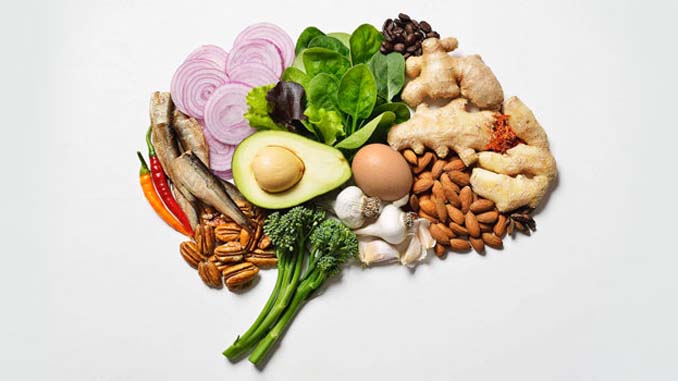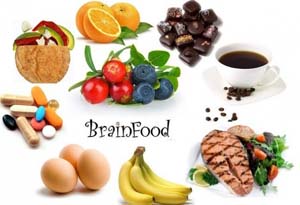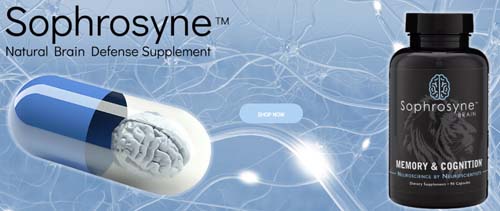
Baby Boomers Learn from Doctors and Scientists The Effects of Diet on our Brain and our Memory
by Dr. Daryl Jones
Doctors and Scientists have learned a lot about the effects of Diet on our Brain and our Memory over the past decade.
Dr. Daryl Jones is a Neuroscientist who has done extensive research on Alzheimer’s and Chronic Traumatic Encephalopathy (CTE) – and his team has scientifically researched and evaluated literally hundreds of ingredients for our memory and cognition-building properties.
Scientific Studies have strongly shown that Dietary Patterns are associated with our overall Brain Health Status and demonstrate a significant reduction in the onset of Dementia and Alzheimers Disease as well as the risk of Heart Disease and Cancers when healthy eating is a habit.
Almost daily we hear about the latest diet trends, everything from Keto to Caveman Diets. But which diets actually work, and which ones are really good for our Baby Boomer Brains and Memory?
Some of these Diets can Produce Rapid and Encouraging Improvements in our Baby Boomer Brain Health and our Age-Related Memory Loss, as well as have wonderful results for our weight loss. But can these immediate Brain Health benefits last?
Dr. Daryl Jones says “Rather than beginning by telling you what you should be eating to help protect your memory, let’s start by considering what you may already be eating, and perhaps make some small, beginner changes there.”
Reduce Your Use of Sugar, Sodas, Butter and Processed Meats and Cheeses
Baby Boomers are at Increased Risk of Memory Loss or even Brain Neurodegenerative Diseases like Dementia and Alzheimer’s disease with those who have higher sugar intakes and those who consume a lot of processed meats and cheeses.
Improve Baby Boomers overall Diet for Better Brain Health and Reduced Memory Loss, by cutting back on sugar as well as on the number of processed meats and cheeses that we eat. Consider the next time that you go shopping, simply exclude these items from your shopping list.
Instead, consider using fresh cuts of chicken for your sandwiches. A freshly cooked chicken is often the same price as a pack of preservative-packed processed ham. And speaking of sandwiches, you should try to cut back on your bead intake, too.
Do you take Sugar with your Coffee? DON’T…
You’ll soon begin to enjoy your morning coffee without sugar if you just drink it without sugar for a few days. You may even begin to notice that you enjoy your coffee more, as the aromas and flavors are no longer masked by boring sweetness. Excitingly, a clinical study found that drinking 4-5 cups of coffee per day was associated with a 65% reduction in the risk of Alzheimer’s disease in later life. The mechanism of how coffee protects the brain is not fully known, but scientists believe that caffeine plays a positive role. Evidence exists for the protective effects of tea, also.
Quit Drinking Sodas – Even Diet Sodas
Sodas are just not good for you. Sodas can be very difficult to quit because they are highly addictive. You may need several attempts to quit soda before you actually succeed but stick at it.
“Personally, I removed Sodas from my Diet during Lent“, says Dr. Jones –
“I decided to give this up for 40 days and 40 nights because I knew I craved it daily. By the end of Lent, I noticed I was having fewer headaches and more energy. I didn’t feel that afternoon tiredness that had been plaguing my work life. Quitting soda was easy at that point because my mind and body had both become accustomed to it not being a part of my life anymore.”
Replace Butter with Healthy Fats such as Olive Oil or Canola Oil.
Instead of Salt, supplement for flavor with Herbs and Spices.
Replace Red Meats with Fish and Poultry.
Diets with Foods that are Good for Our Baby Boomer Brains as well as your Waistline?

Clinical Studies have shown that the Mediterranean Diet and the MIND Diet significantly reduces your risk of Alzheimer’s Disease and other Dementias as well as Memory Loss. Both of these Memory-Boosting Diets are rich in plant-based foods, such as vegetables, whole grains, legumes, nuts, and fruits.
Dr. Jones says, “Since incorporating the Mediterranean diet and MIND diet into my life, I now dislike salt and often crave nuts and leafy greens instead of soda, and have even come to dislike butter, which was an unexpected habit and one that I’ve gladly welcomed!”
Eating more vegetables, fruits and nuts have also been shown to delay the onset of Dementia by up to 4 years in individuals who were known to have an increased genetic risk of the Brain Disease.
Additionally, drinking one glass of wine with your dinner may also help to reduce the risk of Alzheimer’s disease. This is due to the fact that wines are a rich source of polyphenols such as resveratrol, and other antioxidants and anti-inflammatories.
CHOCOLATE?
“One of my favorite parts of talking about brain diets is chocolate! That’s right, chocolate protects your brain from Alzheimer’s disease!” says Dr. Jones.
“The greatest protective effect is observed with dark chocolate, which is rich in cocoa. So feel free to indulge in an after-dinner treat, and why not buy some dark chocolate with nuts, since we know nuts are also great for your brain!
Here is a great guideline to help you navigate your Memory Diet.
To see how well you’re doing right now by giving yourself one point for each of the items on this list.
– Red meat less than four times per week
– Berries at least twice per week
– Fish at least once per week
– Poultry at least twice per week
– Beans more than three times per week
– Nuts at least five times per week
– Fried or fast food less than once per week
– Olive oil for cooking
– Less than a tablespoon of butter or margarine each day
– At least three servings of whole grains each day
– Green leafy vegetables at least six times per week
– Vegetables at least once per day
– Less than one serving of cheese per week
– Less than five pastries or sweets each week
– One glass of wine each day (but not more than one!)
In a clinical study, adults who scored an average of 9.6 or above saw the greatest reduction in Alzheimer’s risk. But don’t be disheartened if you don’t score this highly just yet; people who scored an average of 7.5 points cut their dementia and Alzheimer’s risk by a third!
A total of 15 means you’re doing great!!
How did you do?
Let us know how you’re doing!!
Follow Dr. Daryl Jones on Instagram at @jonescientific for more diet tips!!
 SOPHROSYNE – Brain Health Dietary Supplement
SOPHROSYNE – Brain Health Dietary Supplement
SOPHROSYNE is a First-of-its-Kind Clinically Proven Breakthrough Brain Health Supplement which contains a unique combination of four mind-boosting ingredients, all are clinically proven to improve brain cognition and memory.
“This is great news for Baby Boomers with their aging minds who want to sharpen and prolong their memory,” said Dr. Daryl Jones, a top neuroscientist, and CEO of Jonescientific, who led the development of Sophrosyne after years of clinical research and testing.
Dr. Daryl Jones – a Neuroscientist who has done extensive research on Alzheimer’s and Chronic Traumatic Encephalopathy (CTE) – and his team have scientifically researched and evaluated literally hundreds of ingredients for their memory and cognition-building properties.
 SOPHROSYNE was the outcome of this extensive research, which found that its unique mixture of clinically proven ingredients at clinically active doses, has shown to considerably improve brain cognition, short and long term memory as well as overall good brain health.
SOPHROSYNE was the outcome of this extensive research, which found that its unique mixture of clinically proven ingredients at clinically active doses, has shown to considerably improve brain cognition, short and long term memory as well as overall good brain health.
“There is nothing as effective as Sophrosyne for improving brain health on the market today, says Dr. Jones”
BABY BOOMER MAGAZINE ARTICLE ON SOPHROSYNE:
Baby Boomers Discover the Best Brain Health Supplement Called Sophrosyne.
OTHER ARTICLES ON BABY BOOMER MAGAZINE
Good Sleep Decreases Baby Boomers Risk for Alzheimers
 About Dr. Daryl Rhys Jones
About Dr. Daryl Rhys Jones
Recognized as one of the top experts and researchers in the field of neuroscience, Dr. Jones has an impressive record of published works in scholarly journals which are widely relied upon by other scientists. His innovative research and discoveries, particularly in neurodegenerative diseases, continues to significantly contribute to the field of neuroscience. Among his contributions is the discovery that antibodies created in his laboratory against the infectious protein that causes currently-incurable Creutzfield-Jakob disease (CJD, the human form of “Mad Cow disease”) are able to cure prion-infected brain cells. Dr. Jones and his team later demonstrated that these newly-developed antibodies can also be adapted for the treatment of other diseases, including Alzheimer’s and Parkinson’s.
WEBSITE: JonesScientific.com
